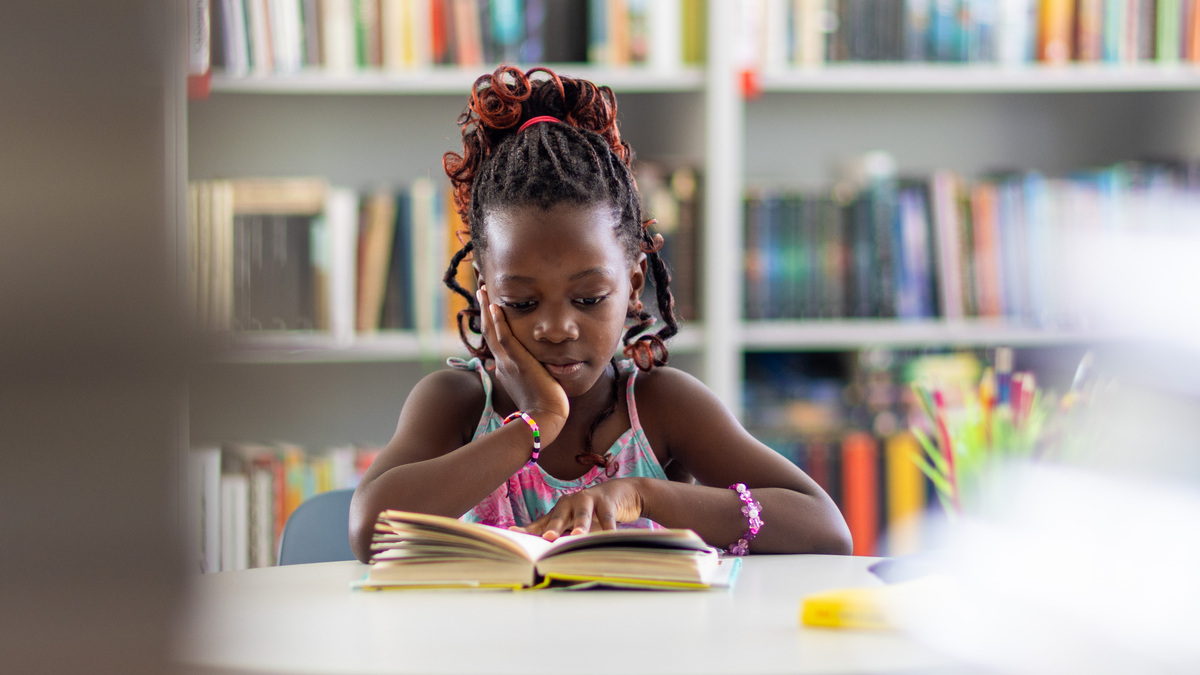
It is not only about being able to decode the words, but also understanding what they read and being able to interpret things that are not directly expressed in the text, i.e. reading between the lines. This is essential for the students to succeed in their studies in all subjects. Students’ language development and reading comprehension are a matter for all teachers of all subjects. Reading also brings about new experiences, meetings and thoughts.
“By reading the children train to think, and develop their analytical and critical thinking skills. This is not least important when it comes to forming a view of all the information which social media constantly drowns them in,” says Katarina Radosevic. As an emigrant from the Balkans, with Swedish as her second language, she has good insight into the importance of improving your language skills in a new home country.
FOCUS ON MORE READING
In IES’ initiative to increase students’ reading, which was initiated in 2022, Katarina Radosevic collaborates with her teacher colleague Malin Riise, and Karin Wannerud the recently appointed school library coordinator.
“One of our tasks is to coordinate initiatives and share knowledge in the field. Many great things have already been done at different schools – we’re now coordinating these. Our goal is to get the entire organisation on board. Additionally, with the help of new digital tools, we can analyse every student’s individual needs regarding their reading skills and provide extra support if needed,” says Malin Riise.
“It’s also important for the parents to get involved in the children’s reading development. For example, if they read aloud to their children this can have several positive effects on language progress. It can also improve children’s imagination and ability to form ideas, spoken language and vocabulary, storytelling and the ability to express thoughts, interest in pictures and texts, and their ability to understand their environment. I read aloud to my students for a while every week,” she continues.
PROVIDE THE RIGHT LITERATURE
Reading aloud can entice children to want to read for themselves – and this is where the school library is important. According to Karin Wannerud, the library first has to offer the right literature that engages the children, and then the librarian should visit the classrooms and “market” the library.
“By providing a stimulating reading environment and a wide variety of texts, our school libraries can support the school’s reading education. If we manage to get the students to want to read, it becomes natural skills training for later studies. We’re trying to bring about a desire to read,” she says.
“It’s important that we’re attentive to what attracts the students. As an example, today we’re seeing that many children don’t only want to read fiction, they’re very interested in non-fiction – probably to counter balance all the “fake news” they’re fed with. They also like reading biographies about their idols. There’s other new phenomena too, for example we’ve noticed that a group of girls who were previously not too strong at reading have had their eyes opened to the romance genre via TikTok,” she continues.
DEMOCRATIC RIGHT TO LEARN TO READ
The Education Act states that we must strive for lifelong learning, and if students don’t take to reading then we miss that opportunity. Those who struggle just to get through the texts in social studies books, mathematics and so on start to associate reading with a sense of meaninglessness. But reading is about being affected and engaged, opening up new possibilities and thoughts.
“It means there can be an immense gap in the classroom between those who read and those who don’t – and that’s what we want to avoid via this initiative. Learning to read is a democratic right for all children”, says Ms Radosevic.
-
IES SCHOOL LIBRARIES. IES has well-equipped school libraries with generous opening hours in all 46 schools. So far 42 of these school libraries are staffed with specialist library staff (70 per cent trained librarians). Many librarians have extensive training, either as a teacher or in another relevant field. All of this means that IES is well-prepared when the law on mandatory school libraries and trained staff comes into force.